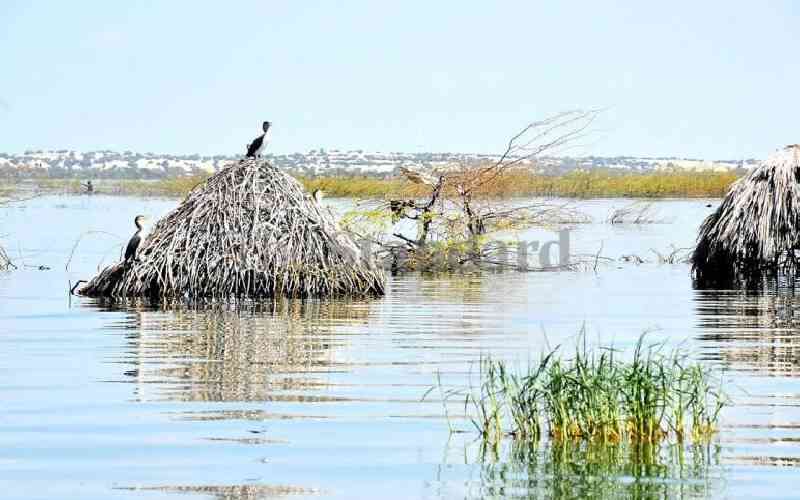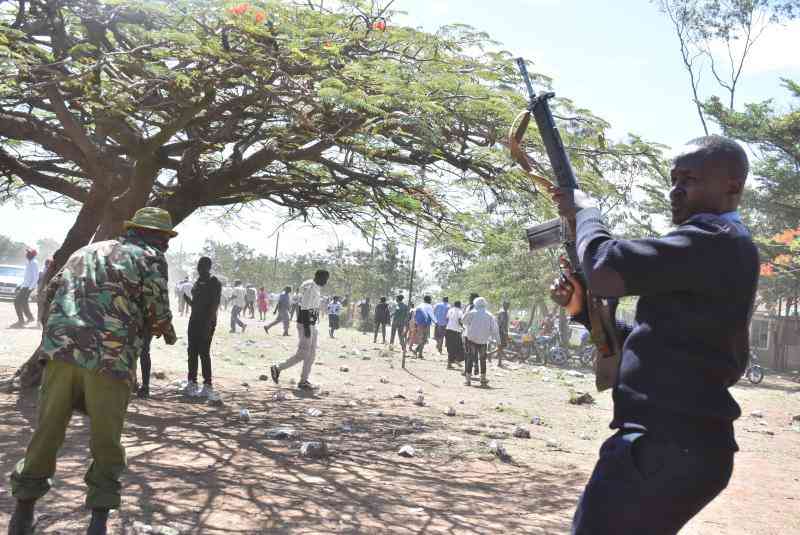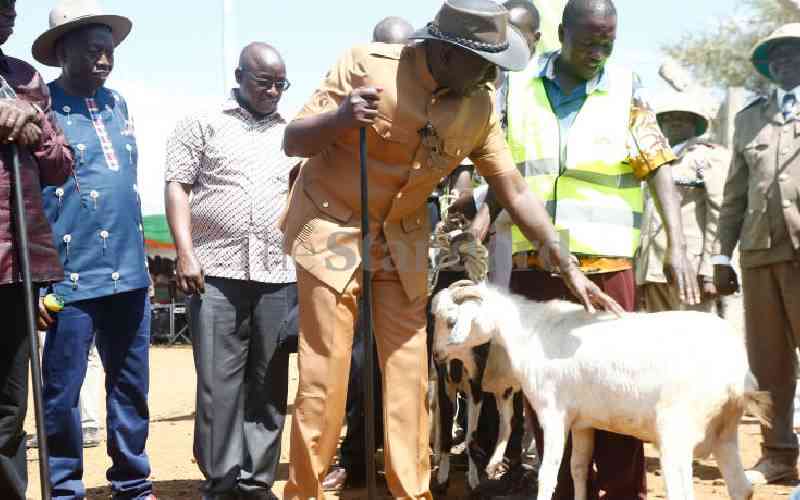Turkana County is back in the news, and once again, it is for all the wrong reasons. Reports of widespread famine threatening lives and livelihoods are an all too familiar story coming from the largest county in the republic. Outrage, shame and disgust at the plight of the suffering have dominated the airwaves at a time when, in the words of John Githongo, ‘never has there been so much stolen by so few from so many in the history of the republic.’
The rush by politicians and officials to promise swift interventions indicates that the government has remembered it is accountable to its citizens, yet will only act when forced and embarrassed into doing so. Deputy President William Ruto insists that no one has died of hunger, but who in heaven’s name believes him?
Governments have always denied deaths from starvation. The late Bishop John Mahon of Lodwar was threatened with deportation in the 80s when he dared to declare that dozens of Turkanas had died of famine and the government was doing nothing to alleviate the suffering. Then, of course, it was mostly the Catholic Church, Oxfam and the World Food Programme who fed the starving. Right up until the advent of devolution, Turkana remained a forgotten northern frontier left to fend for itself and dependant on the charity of foreigners.
Early warning
Today, quite rightfully, fingers are pointed at both the county and national governments for their delayed action and ignoring the early warning signs of drought and famine. In particular, Turkana Governor Josphat Nanok is reminded that Turkana County receives over Sh12 billion per annum and is the largest beneficiary of devolved funds. Where are the funds going and why are people still starving? When people are hungry, they require food like yesterday and the public want quick answers too. However, there are no easy solutions to the harsh, inhospitable conditions that have left 79 per cent of the county’s population in the poverty bracket. Mr Nanok has questions to answer, but to suggest that five years of devolution could repair the neglect and impoverishment of 50 years by the national government is naive and unrealistic.
To focus on the county government alone just lets the national government off the hook. Let us not forget that only 15 per cent of the annual budget is shared between the 47 counties, and it rarely comes on time. Put another way, where is the 85 per cent of the national budget being spent on development and poverty eradication in Turkana? Why just focus on Nanok’s administration when, for example, Sh21 billion has just disappeared in dam corruption?
Of course the pundits and experts have easy, quick solutions to the poverty and hunger. However, few display any knowledge of the challenges of insecurity, pastoralism and land grab that are as much responsible for the famine as climate change. Turkana people are in conflict with their neighbours: the Merille of Ethiopia, the Toposa along the South Sudan border, the Karimojong in Uganda and the Pokot. As a result, the pastoralists are no longer able to graze along the borders, where the best of the grazing land is. Herders are then squeezed into the central divisions of the county that are as dry as much of the Sahara.
Worse still, the oil exploration and the Lapsset project have resulted in the loss of land without consent or compensation for projects that will be of little benefit to the pastoralists. Ethiopian hydro electricity projects on the Omo River will pretty soon lead to the draining of Lake Turkana and there is not a whimper from State House about the plight of Turkanafishing community. Agrarian minded analysts talk big on irrigation projects that might solve the food shortage in Turkana. This has only limited possibilities along the rivers Turkwell and Kerio. However, pastoralism is the only realistic economic option for this harsh environment. What is required is its commercialisation so that pastoralists move into the 21 century and live productively.
That however cannot occur until the security problem is faced. It would appear that the administration police have a new plan for border security. One would hope that this is not just intended to protect foreign companies intent on carting away the county’s oil deposits. A mindset change is first and foremost required so that Turkanas are viewed as citizens worthy of security, participation and respect like every other community in the republic.
- [email protected] @GabrielDolan1
 The Standard Group Plc is a
multi-media organization with investments in media platforms spanning newspaper
print operations, television, radio broadcasting, digital and online services. The
Standard Group is recognized as a leading multi-media house in Kenya with a key
influence in matters of national and international interest.
The Standard Group Plc is a
multi-media organization with investments in media platforms spanning newspaper
print operations, television, radio broadcasting, digital and online services. The
Standard Group is recognized as a leading multi-media house in Kenya with a key
influence in matters of national and international interest.
 The Standard Group Plc is a
multi-media organization with investments in media platforms spanning newspaper
print operations, television, radio broadcasting, digital and online services. The
Standard Group is recognized as a leading multi-media house in Kenya with a key
influence in matters of national and international interest.
The Standard Group Plc is a
multi-media organization with investments in media platforms spanning newspaper
print operations, television, radio broadcasting, digital and online services. The
Standard Group is recognized as a leading multi-media house in Kenya with a key
influence in matters of national and international interest.








